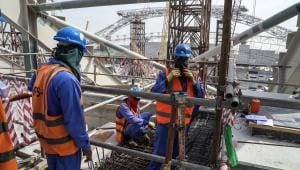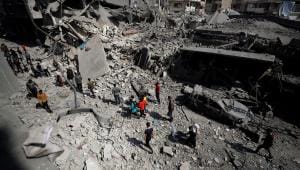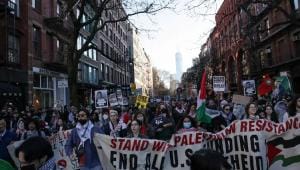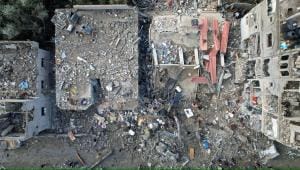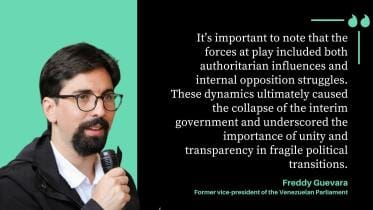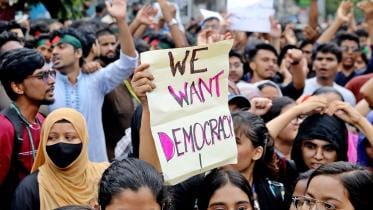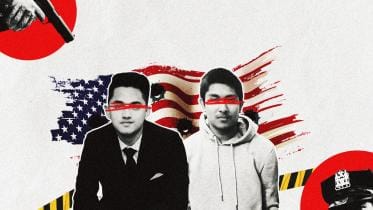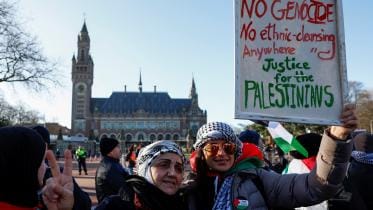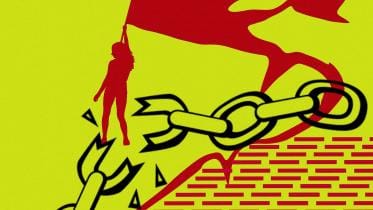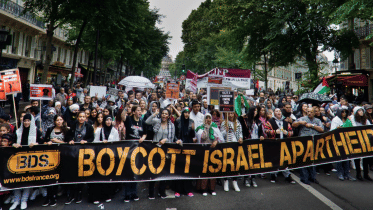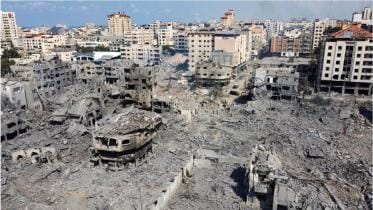Harvard vs Trump: 'Limiting international participation would impoverish our academic mission'
In an interview with Dr Fernando M. Reimers, the Ford Foundation Professor of the Practice in International Education at Harvard.
28 May 2025, 04:00 AM
Tracing women’s rights through Islamic legal history
Islam articulated a bold vision for women’s dignity and autonomy in its earliest revelations.
23 May 2025, 02:00 AM
REPLANTING THE BONSAI: Empowering Bangladeshi diaspora for a changing Gulf
Chief Adviser Yunus’ keynote address urged an end to the systemic barriers that restrict the potential of young people.
14 May 2025, 07:00 AM
Rising tariffs may lead to a global recession
The impact of the seismic shift in the global economy caused by Trump’s reciprocal tariffs is as immediate as it is personal.
9 April 2025, 06:00 AM
Netanyahu’s war and the human cost
The Netanyahu government spent approximately $31 billion on the war in Gaza (and Lebanon) in 2024.
24 March 2025, 04:00 AM
We are Asiya: A battle lost, but the fight lives on
Asiya's story is a tragedy where a child's life and worth are violently denied.
15 March 2025, 03:00 AM
How Mahmoud Khalil’s arrest threatens free speech on US campuses
Beyond the personal cost to activists, the economic and diplomatic fallout of these crackdowns could be severe.
12 March 2025, 07:31 AM
Another year of devastation for the Palestinians
Violent clashes between settlers and Palestinians have resulted in multiple fatalities throughout 2024.
15 January 2025, 05:00 AM
Why India should address the misinformation campaign against Bangladesh
India is applying its own framework of sectarian politics to interpret and represent Bangladesh.
4 December 2024, 02:00 AM
Trump’s victory and why the Democratic Party failed
Kamala Harris may have offered a promise for some, but it was a change in appearance and not substance, and that alienated voters who vote based on principles.
8 November 2024, 02:00 AM
Venezuela’s experience with democracy
Venezuelan politician Freddy Guevara shares why his country could not successfully transition to a democracy.
30 October 2024, 02:00 AM
Can the government govern itself?
The problem with parties in Bangladesh is that their activism relies on backward-looking and person-centric politics and revolves around a single leader.
12 August 2024, 02:00 AM
How Trump's assassination attempt affects the US election
The imagery of blood trickling down Trump's face and fist up in the air is quite iconic—supporters who loved him love him more, and the ones who did not look at him are looking at him now.
17 July 2024, 05:00 AM
Death of Bangladeshi youths in the US: When violence hits home
The police killings of Win Rozario and Sayed Faisal, Bangladeshi American youth, have put the role of law enforcers under great scrutiny.
16 June 2024, 14:00 PM
We are not just bystanders in the colonial space
The optics of visible solidarity for Palestine is important because it shows that the world is witnessing and recording this blatant act of outright dehumanisation.
21 May 2024, 10:50 AM
To combat gender-based violence, do away with systemic bias
Gender inequality and violence as the outcome of a society are symptomatic of the ethos that shape policies, family structures and opportunities for men and women.
7 December 2023, 02:00 AM
Will boycotting Israeli products bring peace for Palestinians?
Regardless of the tenacious systems of injustice the BDS movement works against, boycott has historically been a useful tool for advocacy and solidarity.
20 November 2023, 13:00 PM
Israel: A US project gone rogue
This current exchange between the US and Israel is a compelling case of how the US has become a puppet state
5 November 2023, 14:00 PM
Western media’s ahistorical reporting around Palestine-Israel
While there are gruesome acts from both sides, this is not a war between equals.
12 October 2023, 14:00 PM
How this city kills its people
Loneliness, anxiety, depression – these have all intricately seeped into the very core of how we live in Dhaka.
4 September 2023, 05:00 AM






